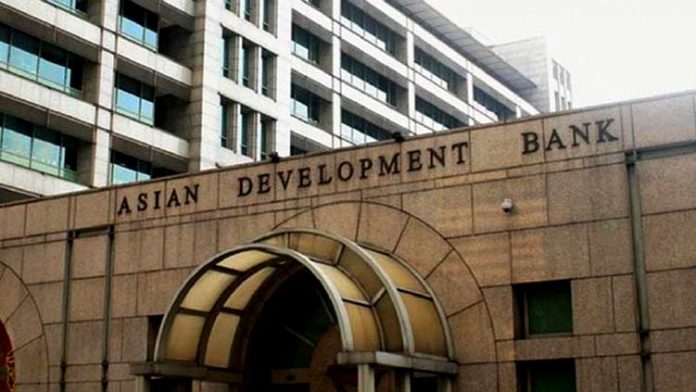Staff Report
ISLAMABAD: The Asian Development Bank (ADB) on Wednesday released $1.5 billion to the State Bank of Pakistan (SBP) under Building Resilience Under Active Countercyclical Expenditures (BRACE) Program.
The BRACE program aims to support the government’s efforts to deal with the adverse impacts of devastating floods, supply chain disruptions, rising energy, fuel prices and inflation on the poor and vulnerable, said a press release issued here.
It would expand the number of families receiving cash transfers through Benazir Income Support Programme (BISP) from 7.9 million to 9 million, increase the number of children enrolled in primary and secondary schools, and enhance geographic coverage of health services and nutritional supplies for pregnant and lactating mothers and children under 2 years old.
The program is completely aligned with the Government’s strategy to provide targeted and temporary countercyclical relief measures.
The facility aims to support deployment of planned countercyclical development expenditure and will promote sound macroeconomic management. The program is also in line with the framework of ongoing International Monetary Fund (IMF) program to implement necessary structural reforms to improve the country’s macroeconomic prospects.
It will also enhance support for business entities to safeguard employment and would help increasing food security measures as well. Furthermore, it will also strengthen social safety net and fiscal measures for the government’s crisis response.
The BRACE program amounting to US$ 1.5 billion was approved by the ADB Board on Friday, 21st October 2022. This program was initially conceived and approved by the ADB’s Board in May 2022 under a new Countercyclical Support Facility (CSF) to provide targeted support to its developing member countries (DMCs) facing emergency situations.
The signing ceremony of the BRACE Program was held on 24th October 2022 at Prime Minister House, which was witnessed by the Prime Minister of Pakistan, Federal Minister for Economic Affairs, Sardar Ayaz Sadiq, Federal Minister for Finance and Revenue, Senator Ishaq Dar along with Director General ADB Central and West Asia Department.
Meanwhile, Sindh Chief Minister Syed Murad Ali Shah, in his meeting with the Director-General of the Asian Development Bank for Central and West Asia department Eugenue Zhukov, said that the World Bank has pledged Rs110
billion against a requirement of Rs1,500 billion for the construction of houses destroyed in the recent floods, therefore, the Asian bank may come over to meet the shortfall of the funds.
CM Shah said that the climate change victims of Sindh have lost around 1.8 million houses during the heavy downpour and floods, adding that the initial estimates showed that Rs1,500 billion were required to construct 1.8 million houses.
The CM said that the world bank has pledged Rs110 billion ($500 million) against a total requirement of Rs1,500 billion. “We shall be thankful if the Asian bank meets the shortfall of Rs1,390 billion so that all the homeless people could be provided with shelter/house,” he said.
The visiting ADB DG told the chief minister that the bank has committed $475 million to the federal government, of which $300 million would be the share of the provincial government for the construction of damaged infrastructure.
Out of $475 million, $100 million would be given to NHA for the reconstruction of the Motorway, from Karachi to Hyderabad.
CM Shah told the ADB official that the country in general and the province of Sindh, in particular, has suffered heavy losses due to climate change despite Pakistan’s total contribution to emissions recorded at 0.8%. He added that the international community and donor agencies should support the country in the rehabilitation of the affected people and infrastructure.
Eugenue said that his bank would start a project to mitigate the effects of climate change in Sindh. The project was under consideration between the ADB and the Sindh Planning & Development department.
The CM told the visiting DG of the ADB that the small roads connecting different villages to the main roads and the cities have been badly damaged. He proposed a project for the rehabilitation of small roads so that the mobility of the people for sake of their livelihood and economy could be ensured.
The CM and the visiting ADB DG also discussed the rehabilitation of provincial roads for which P&D and works departments were working with the bank.




